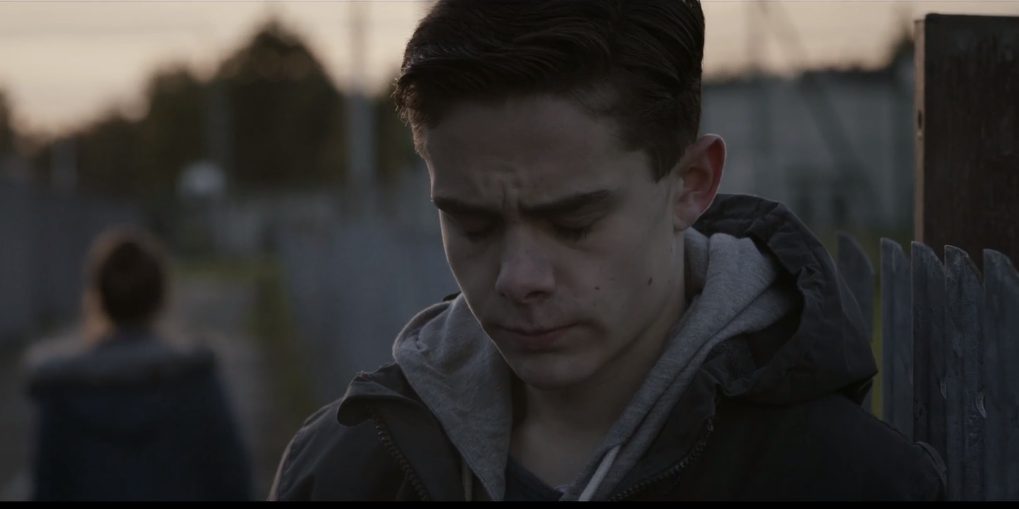Part of the Glasgow Film Festival 2018
Life for Michael, a boy from a poor area of Dublin being raised by his grandfather due to the fact his mother is dead and his father is incarcerated, becomes decidedly challenging after he is sentenced to three months for possessing drugs.
Whilst it may not sound like the most original plot, Michael Inside is an engrossing and compelling movie. Expertly paced by writer/director Frank Berry, the cinematography is beautifully languid with a style which is almost quasi-documentary, complete with over-the-shoulder shots in court and characters framed in doorways. Indeed, Michael is always shown to be inside in a very real sense, with his surroundings (from his house to the fencing above the motorway and not being able to look at a kettle in the same way again) entrapping him in subtly different ways. At times framed off-centre and in long shot, Michael is visually lost in his environment. The limited use of a musical score adds to the verisimilitude.
Lalor Roddy provides a brilliant performance as Michael’s grandfather. From unwisely paying off Michael’s “debt” to providing a character reference, the bond between both characters is entirely believable. As the prison nasty, Moe Dunford is similarly believable, being something of a human volcano. Physically intimidating (especially when next to the delicate, model-like Dafhyd Flynn as Michael) his reactions are entirely unpredictable, with the fear and unrest he creates for Michael eventually being felt by the audience.
However, this is unquestionably Flynn’s movie. As Michael, his performance is a masterclass in nuance, conveying an interiority at all times. From crying in court to the gradual hardening of his character as he gets pulled further into a spiral of violence, he anchors the proceedings through his physicality and delivery. Michael’s fate is almost Shakespearean in the inevitability of the tragedy which befalls him.
Building to a conclusion which feels harshly cruel, Michael Inside does not flinch away from examining the corrosive effects of violence. This includes the initial decision to issue Michael with a short-term sentence in the first place, a sentence rather glibly described by the judge (deliciously only heard God-like as a voice on the soundtrack) as a “short, sharp shock”. No easy answers are provided in a system which goes on and on, sardonically summed up by the solicitor offering his condolences to Frances whilst telling his next young male defendant to take his hands out of his pockets.
